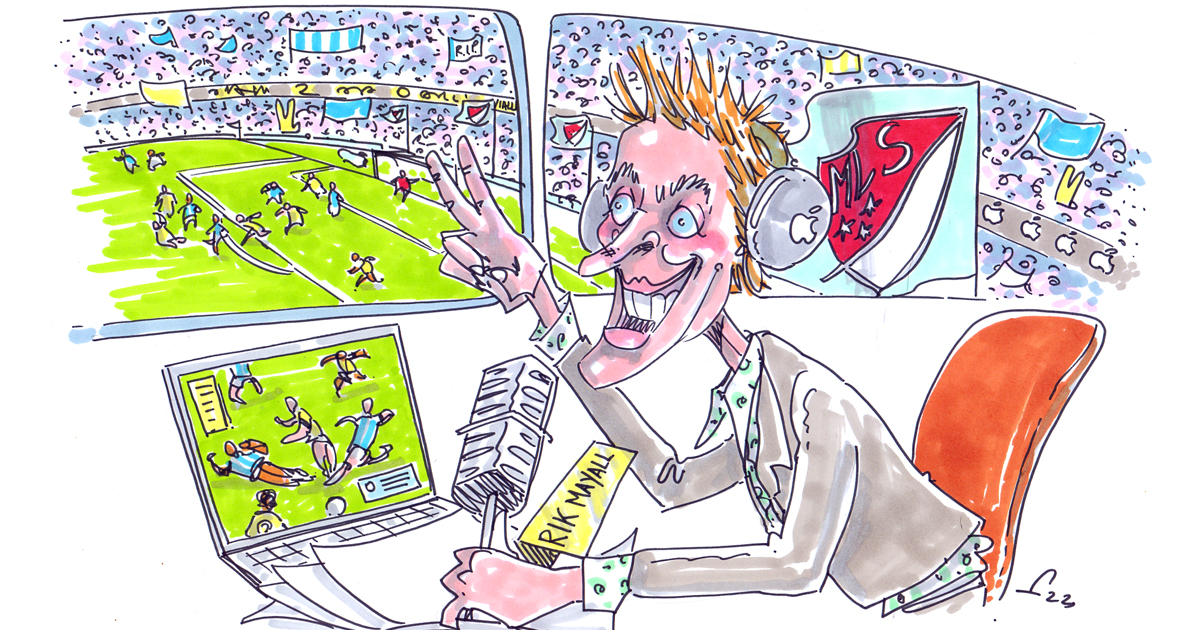What comes first, the story or the storyteller?
For what it’s worth, in a period where we are seeing such fresh new creative talents in our timelines, one of the best pieces of content I saw in 2022 was the simply magnificent Rick Mayall on Jackanory, from many years ago. Please give an hour of your time to this.
A children’s story by Roald Dahl, in itself only one of many such yarns, not especially unique, but raised to extraordinary levels of entertainment by the storyteller himself.
What value the storyteller? What value the story?
With the Epiphany visit of the three Kings just passed, we close the period of what atheists understandably describe as merely “the greatest story ever told“.
Storytellers: Matthew, Mark, Luke and John.
And, at this time of year, when the “bells” advance the Anno Domini, it’s a natural moment of reflection.
Don’t worry, I’m not about to add to the overflowing punch bowl of 2022 review / 2023 prediction articles. There have been so many just excellent examples. I can’t better them.
I give you the links here, as proof, to the Sport A to Z efforts of Andy Marston:
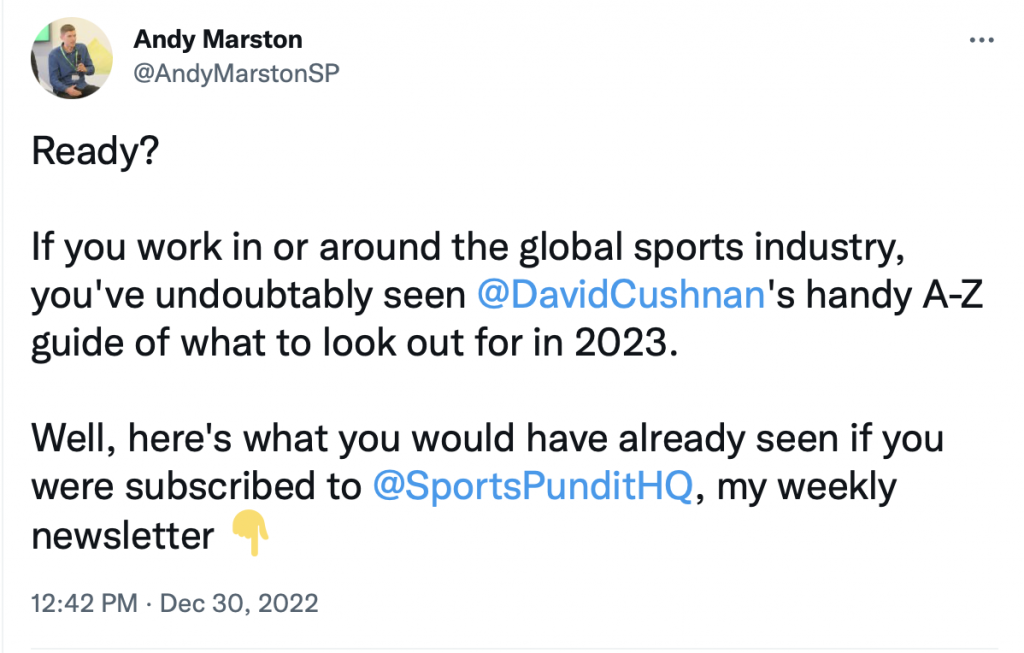
and David Cushnan:
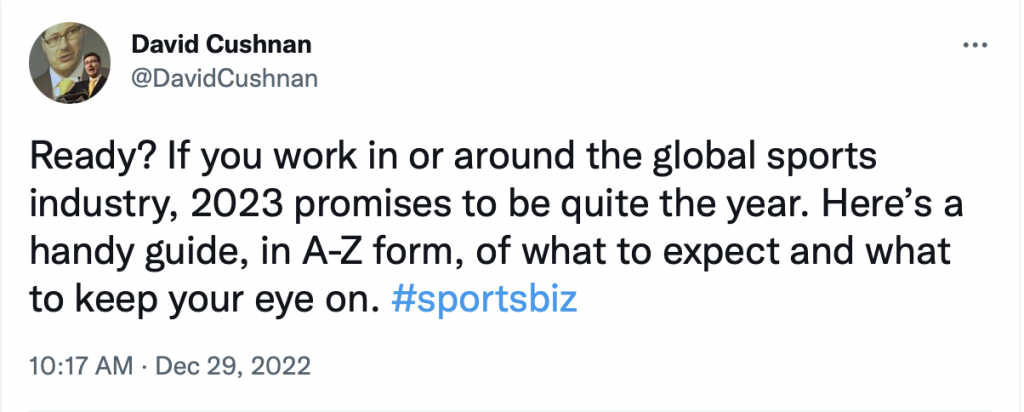
No, I’m not now going to add my own hot take. Not every thought needs to be published every day. Less is more is my New Year Resolution. The world doesn’t need another opinion just for the sake of it.
The objective has to be to find something different no?
By the way, who else has noticed the enormous market in meditation, mindfulness, and ASMR content? Especially among young people.
Like many things, probably missed by Boomer Land. Some stats of the phenomenon here.
Calm time to think, walking without headphones, structured meditation, or, in my own case, a Sunday visit to the temple, are all essential moments to find some new insight in the butter mountains of the content glut.
What did all these list articles, takeaways, tweet threads, generate for me? That isn’t just repeating another 20 people?
It’s maybe this.
We say with pride that
SPORT IS UNSCRIPTED DRAMA.
So how does that square with the cult of storytelling that we have heard for 20 years?
You know what I mean. Everyone is now a storyteller, every job or task is storytelling, the endless pointers and “how to” articles/courses of great storytelling. Yes, storytelling itself has become as clichéd as a Mills and Boon novel,
But that doesn’t make the concept wrong.
I’m a big believer in storytelling. Anyone involved in “brand” needs to be a believer.
Listen to the younger generations, as they comment of films, The Marvel Universe, or TV Series. They talk about character arc. They have very clear ideas on all that. There is a lot to learn.
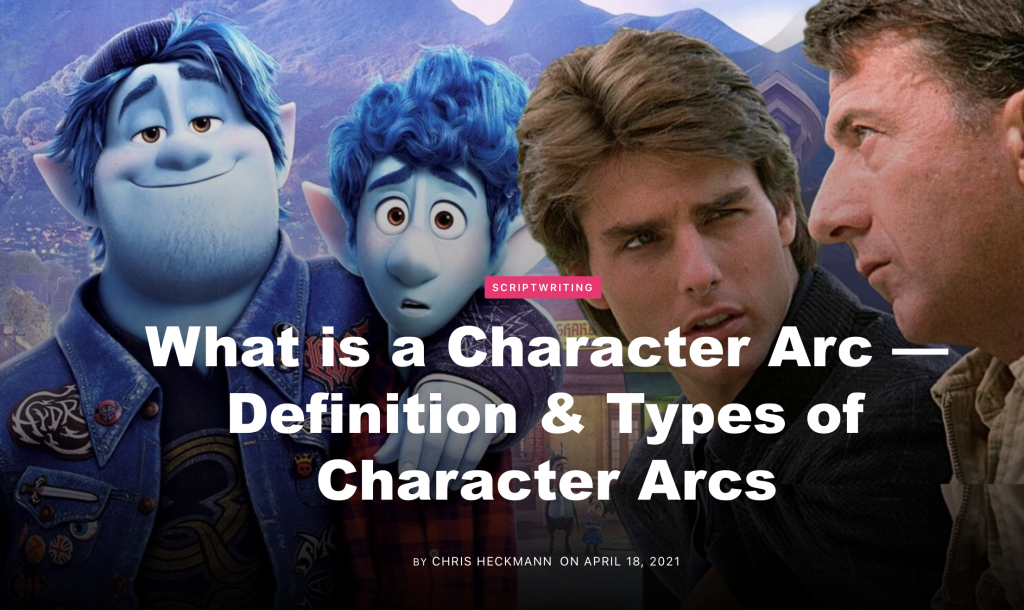
You can all google a thousand articles on storytelling. Im not going to bore you. I do however like this more professional business piece, from the Harvard Business Review.
Where am I going with all this?
Wherever the destination of this article eventually is, (and it is never clear as I write an article), the road passes through my other “vertical” of some competence; that of finance.
Has 2022 not been the year where the narrative boys, the “meme stocks”, the vision pitches, the storytellers, have ALL been found out?
With a revival of that old political ad, “where’s the beef”?
Where’s the beef, Elon?
Where’s the beef, FTX?
Where’s the beef, Solana?
Where’s the beef, Meta?
Where’s the beef, Netflix?
The era of the charismatic PT Barnum of the capital markets is losing its lustre. That’s not banal.
The eternal debate in finance between “growth” and “value” seems to be swinging back to the value fundamentals of Ben Graham, Buffet and Munger. Check out some of the share price losses in Big Tech, Tesla, and all of the cool kids who always tell you “never mind what I promised you last time, have I got a great story for you!”.
I will of course not derail this article with all that deep dive; it is, after all, the theme of the Finance and Sport book I’m hoping will see the light of day in 2023. A year which I think will be sport’s Margin Call (the working title of the book).
Where’s the beef in the Peacock story? The FuboTV story? The subscription business model story?
Check out this tweet from the must-follow Matthew Ball:
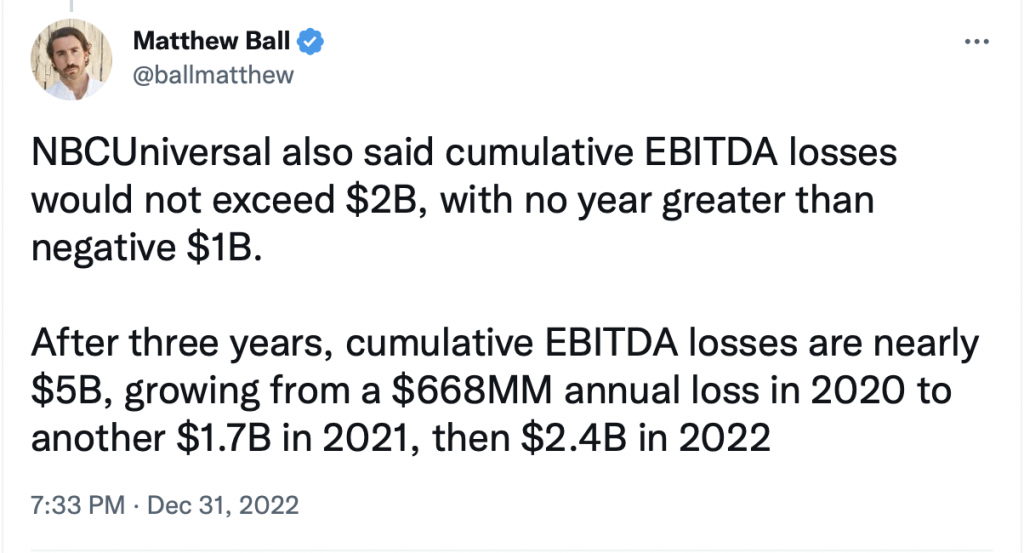
People seem to be calling out BS much more.
What does that mean for storytelling? Bubble burst?
I don’t think so. It’s complex.
Searching for an answer to the conundrum, I was thinking back on our AYNE podcasts this year. The standout for me was Barry Hearn. Barry has made a personal fortune, and built/saved much of old working class sport, by building character arcs! Telling stories. Steve Interesting Davis in mortal combat against the Hurricane. Same in darts. Barry Hearn sees the value of sport as getting normal punters invested in personality. Interestingly, he is doing the same with his own life story. He tells his wonderful human journey with pathos and humour.
The best stories are the ones about heroes and rivalry, like the Iliad. Look how the storyteller beautifully opens the film Troy.
Isn’t the WWE all about that?
Heroes and villains, character arc and the up and down flow of stories? Often the redemption version.
UFC and Conor ditto.
Paddy the Baddy idem
Drive to Survive is storytelling, pure and simple. Hide the fact that the sporting event is often rather dull, a procession, dominated by few names and cars; by taking the viewer into the backstory hopes and fears of the “extras”?
So this is what popped into my head, after my own meditation:
Does the future of sport lie in unscripted drama, or must it invest more in storytelling, personalities and character arc (like the rest of the modern entertainment industry)?
My own brain works like this: once I have the macro philosophy question, the starter for 10 if you will, a handful of other supplementals must follow à la University Challenge.
- “Unscripted” is exciting in its randomness, but it can come out good or bad. Entertaining or flat. Whilst there is nothing more thrilling and entertaining as unpredictable excellence in sport, (the last hour of the World Cup final), DOES THAT HAPPEN OFTEN ENOUGH TO WORK IN TODAY’S ENTERTAINMENT WORLD?
- Is an investment in “unscripted drama” a good financial bet, balancing risk and reward, especially in these times of more costly and scarce capital? Would you, running a media company, not be better playing safe? If indeed the cost of volatility is rising, (again see Sport’s Margin Call on exactly this), why invest in “unscripted”? Is it not too risky? No one got sacked buying Dwayne Johnson?
- Does sport even have the mindset to find the right storyteller to minimise the risk for these investors, and maximise a day-by-day constant attractiveness to consumers? That’s gotta be a big question.
It is on this last thought here, that I found what I hope is a good unique insight.
Sport and its executives have been working to maximise revenues
Sport for the last few decades has not had to do any work on this at all. It has subcontracted its storytelling to third parties, namely its broadcast partners. This is a crucial point, worth taking a moment on which to chew. Sport and its executives have instead worked simply to maximise revenues.
Here is a quick Sport Industry for Dummies summary.
The playbook was this.
- Get as many potential bidders for your broadcast rights to the table as possible. Auctions work well like that.
- Bring in new types of bidder like Big Tech. Suggest that they are going to be massively interested.
- Create Fomo.
- Maximise the total pot. Called by many the MG (minimum guarantee) mindset . Big safe money up front.
- When that is saturated, you need more games:
– Add in new competitions.
– Steal them from your competing governing bodies.
The FIFA announcement of the Club World Cup was going to be the subject of this first Sunday Column of 2023, but I’ll leave that for another day, when the Champions League starts up again.
There was no thought in sport to marketing,
far less to strategic segmented marketing.
Bring a lot of money to the centre, distribute it to the clubs, let the broadcaster and journalists market the game. Rinse and repeat.
To see this in action, think Sky Sports in 1992. They had a crucial part in the success of the English Premier League.
The luck of having someone paying you big bucks, but also marketing your stories and character arcs beautifully.
Best of all worlds.
Then something happened to sport’s way of selling. Pesky lawyers, and regulators.
AntiTrust.
We were told that rights legally needed to be segmented into different packages. No-one could own it all. As it was bad for the customer.
There is a whole essay to be written here on the unintended negative consequences on trying to direct markets. I mean, sports consumers are paying more than ever, across multiple platforms, with horrible discoverability. Good job!
Worst of all these, we have seen sport’s narrative, its events, its games, split between different storytellers. Each having an incomplete part of the journey.
One could argue that many sports like rugby, cricket, Scottish football have suffered hugely from not having one master storyteller, a Rick Mayall, making the whole thing a joined up elegant and entertaining narrative.
Here’s the rub.
You break up the story, and people will focus on each separate episode, and start choosing. Trying to guess where the juice will be. Rather than selling them a multi-stop journey, where they will accept that “unscripted” sometimes disappoints, you make them judge each moment separately?
Think of the NFL these days. Games spread across days, in market, out of market, Black Friday games, Thursday, Monday. Traditional broadcasters, streamers, Amazon, Google, Nickelodeon. The monetisation is great… the story is pulp fiction in its original definition (fiction dealing with lurid or sensational subjects, often printed on rough, low-quality paper manufactured from wood pulp.)
Sport needs to work out this storytelling versus “unscripted drama” lark.
Premium sport won’t… it is still in Jerry Maguire’s “Show Me the Money” mode. That will not change, ever.
The long tail will need to work harder. It will need a storyteller like Barry Hearn and one consistent broadcast partner.
One consistent broadcast partner?
Hmm, I’m sure there was a big story on that this year.
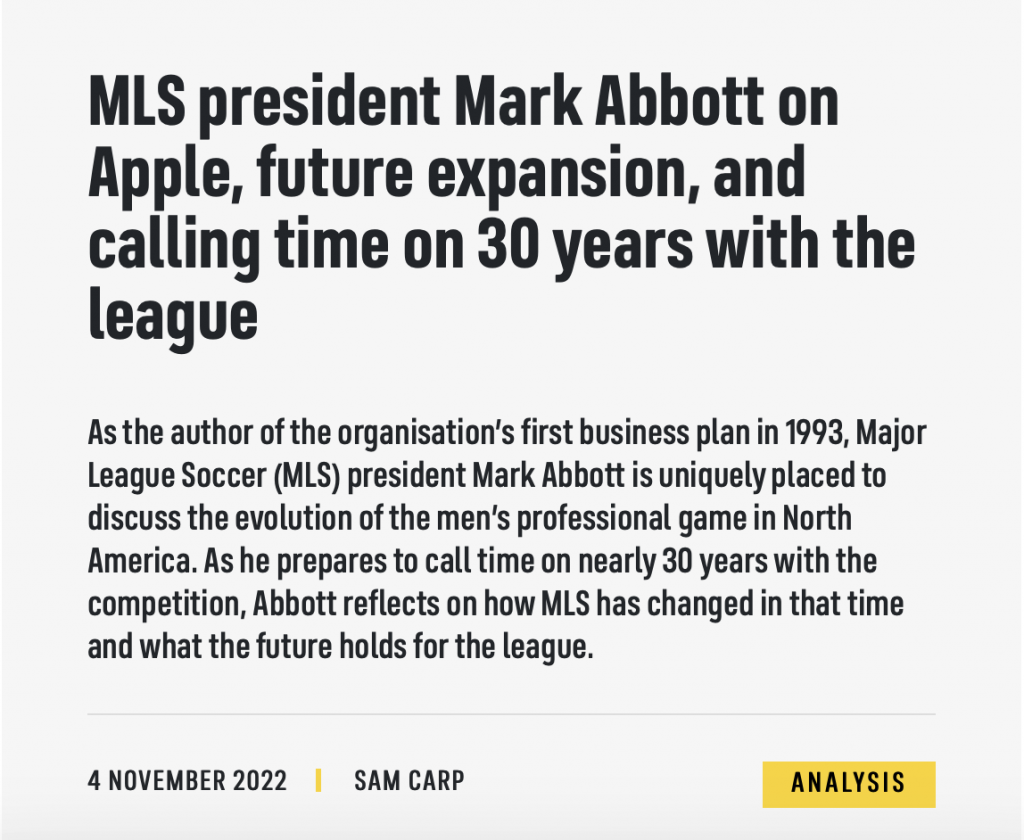
The MLS Apple deal isn’t about money; it’s about world-class storytelling and ease of discoverability.
Meditate on that, whilst listening to ASMR videos.
Listen to our “Are you not entertained?” sports management podcast here.
To find out what we do in change management, have a look here.
For our C-suite management services, read here.
Hereyou can know more about our content development work.
Discover our Corporate Learning service.
Get to know more our “Sport Summit Como” yearly sports management event here.
If you are interested in our own story, check us out here.


